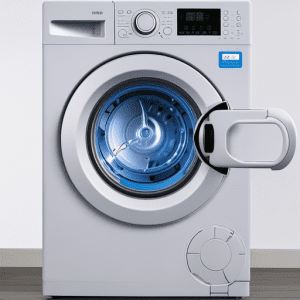How do smart washing machines help save water and electricity?
As we stand at the crest of the wave in the intelligent and new energy industry, we can’t help but ponder: how can we perfectly blend ancient wisdom with modern technology to achieve a more efficient and environmentally friendly lifestyle? Just as the I Ching says: “Heaven’s movement is ever vigorous; the superior man should constantly strive to improve himself.” Today, one of the ways we strive to improve is through smart home appliances like intelligent washing machines, to save water and electricity resources.

Smart washing machines, as an important part of the smart home, not only enhance our quality of life but also play a significant role in energy conservation and emission reduction. According to a report from the International Energy Agency (IEA), the energy consumption of household appliances accounts for about 15% of the global total energy consumption, and smart washing machines, with their energy-saving features, are expected to significantly reduce this proportion.
Firstly, smart washing machines have intelligent washing systems. They can automatically adjust the water level and washing time based on the weight, material, and degree of staining of the clothes, thereby reducing unnecessary consumption of water resources and electricity.
Secondly, smart washing machines are usually equipped with efficient motors and optimized washing programs. These designs can complete the washing task in a short time while reducing energy consumption. Market research data show that smart washing machines can save an average of 30% energy compared to traditional washing machines.
Moreover, the self-cleaning function of smart washing machines is also a reflection of its environmental protection characteristics. They can clean the interior with high-temperature steam without using chemical cleaners, reducing the impact on the environment.
In addition, smart washing machines can also be connected to the smart home system to achieve remote control and energy management. Users can choose to do laundry during periods when the electricity price is lower according to the load of the power grid, further saving on electricity costs.
Of course, the development of smart washing machines is also inseparable from the support of the Internet of Things (IoT) technology. By collecting and analyzing user usage data, smart washing machines can continuously optimize the washing program to achieve more personalized and efficient energy utilization.
Looking to the future, with the further development of technologies such as 5G and artificial intelligence, we have reason to believe that smart washing machines will become more intelligent and personalized, making a greater contribution to achieving a green, low-carbon lifestyle. Just as the Dao De Jing says: “The highest virtue is like water, which benefits all things without contention.” Smart washing machines are moistening our daily life with their silent power, making our lives better. Thank you, everyone!













Post Comment